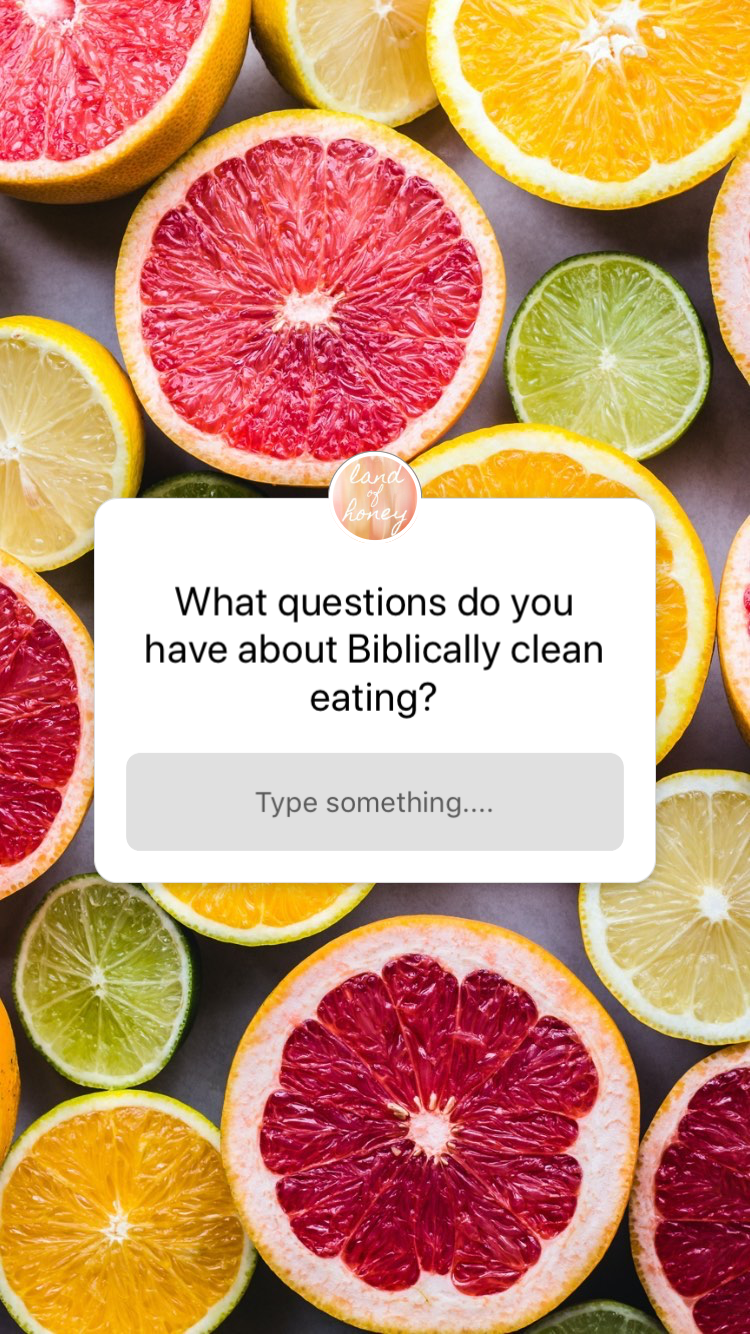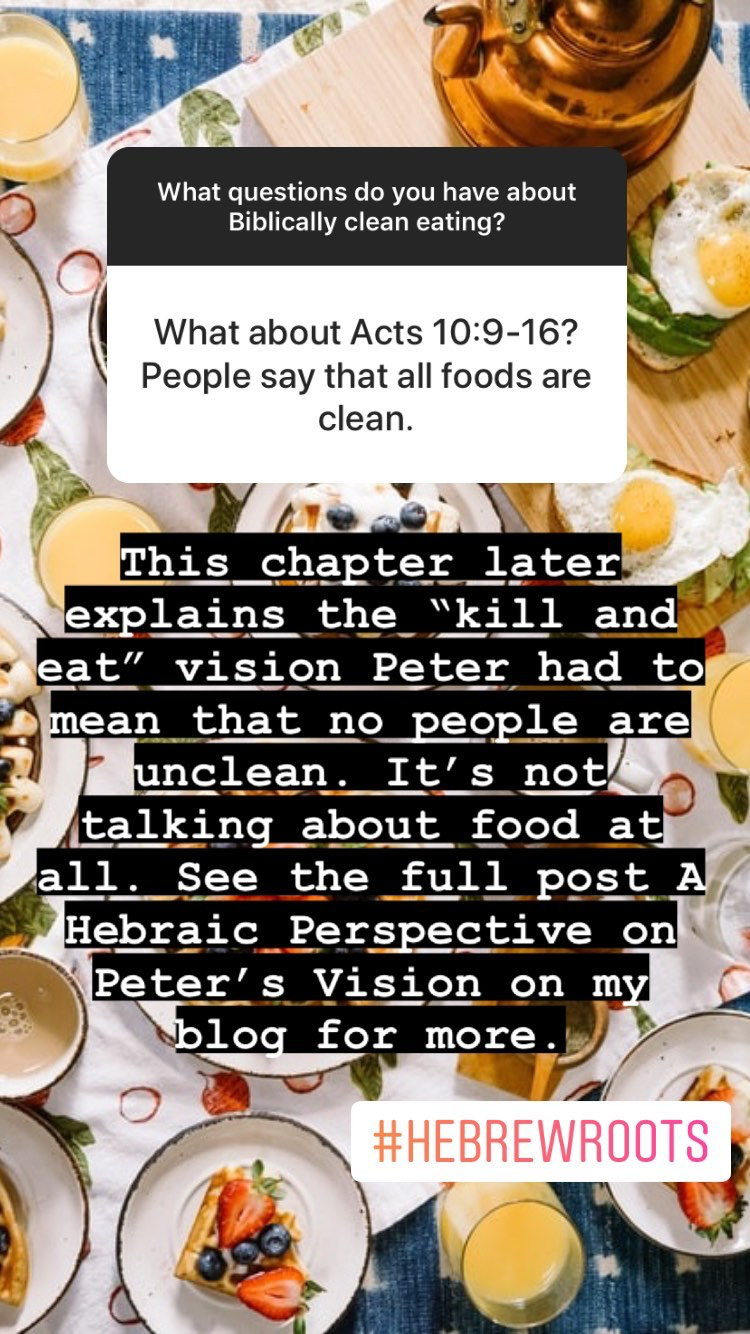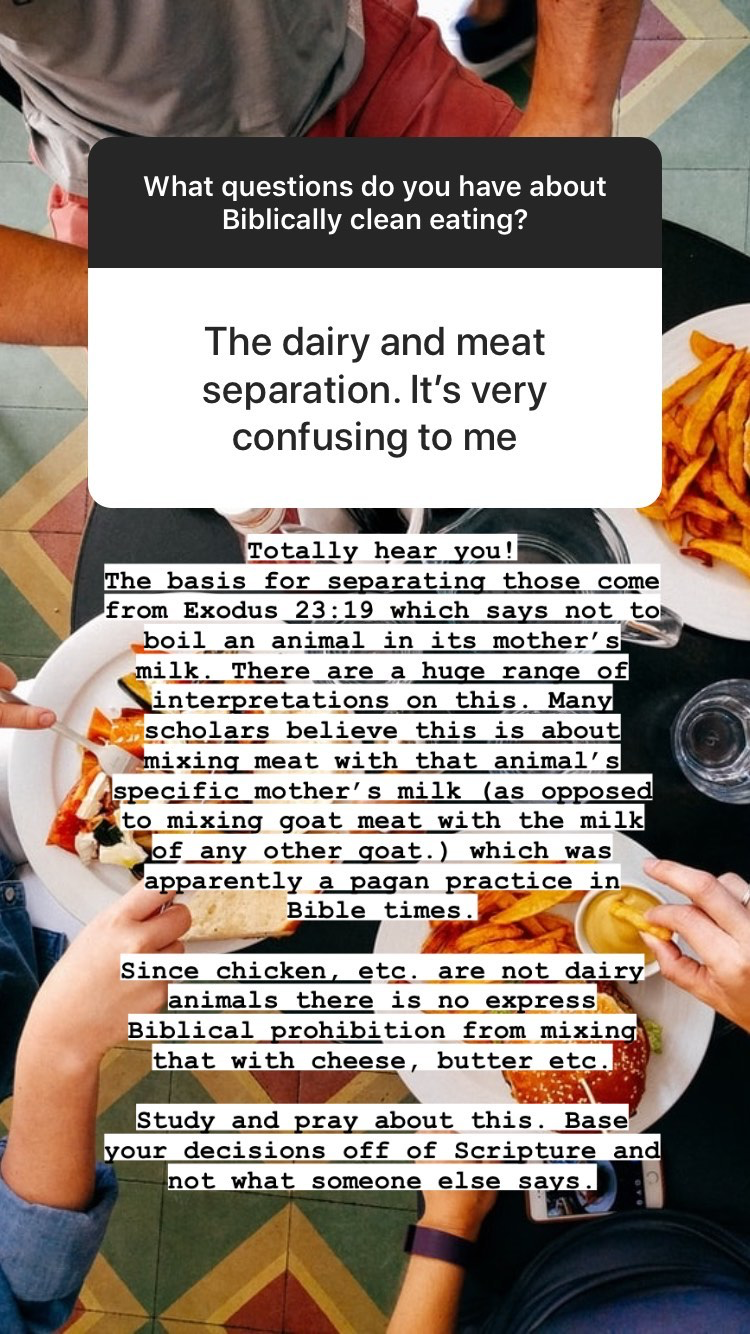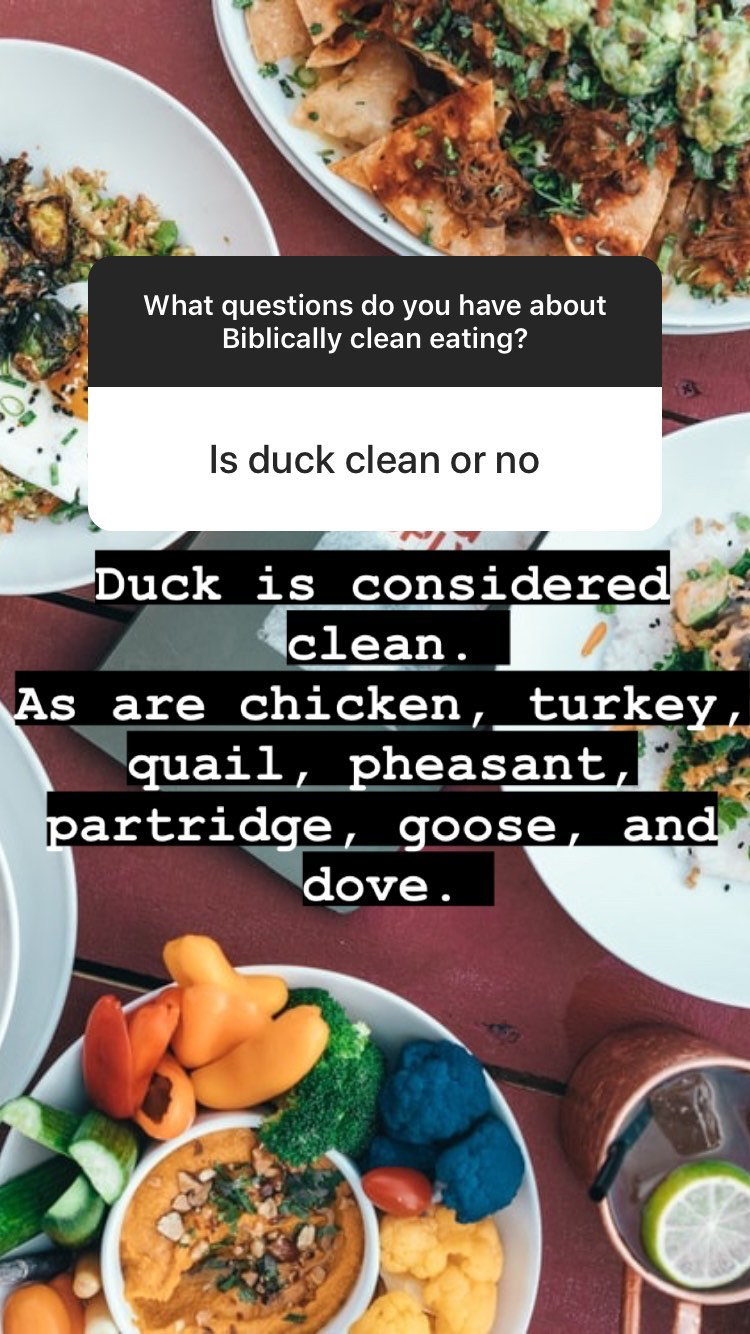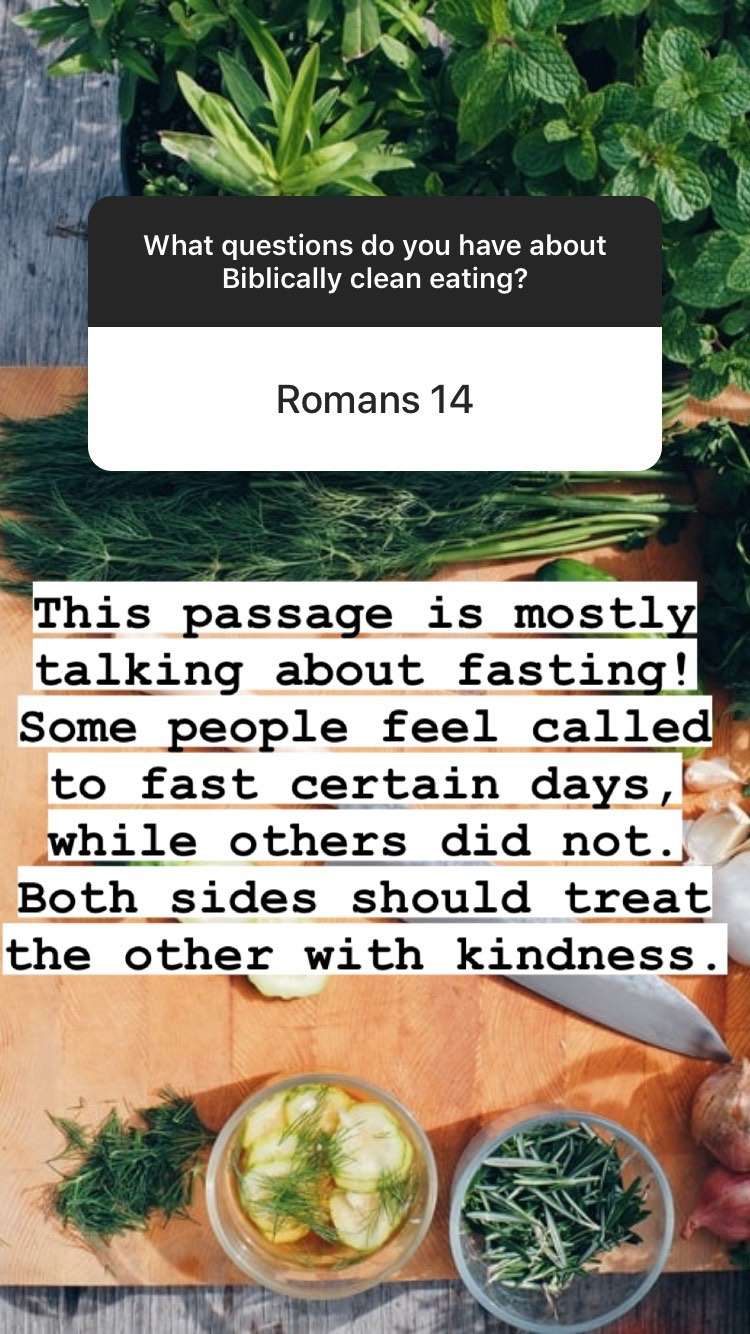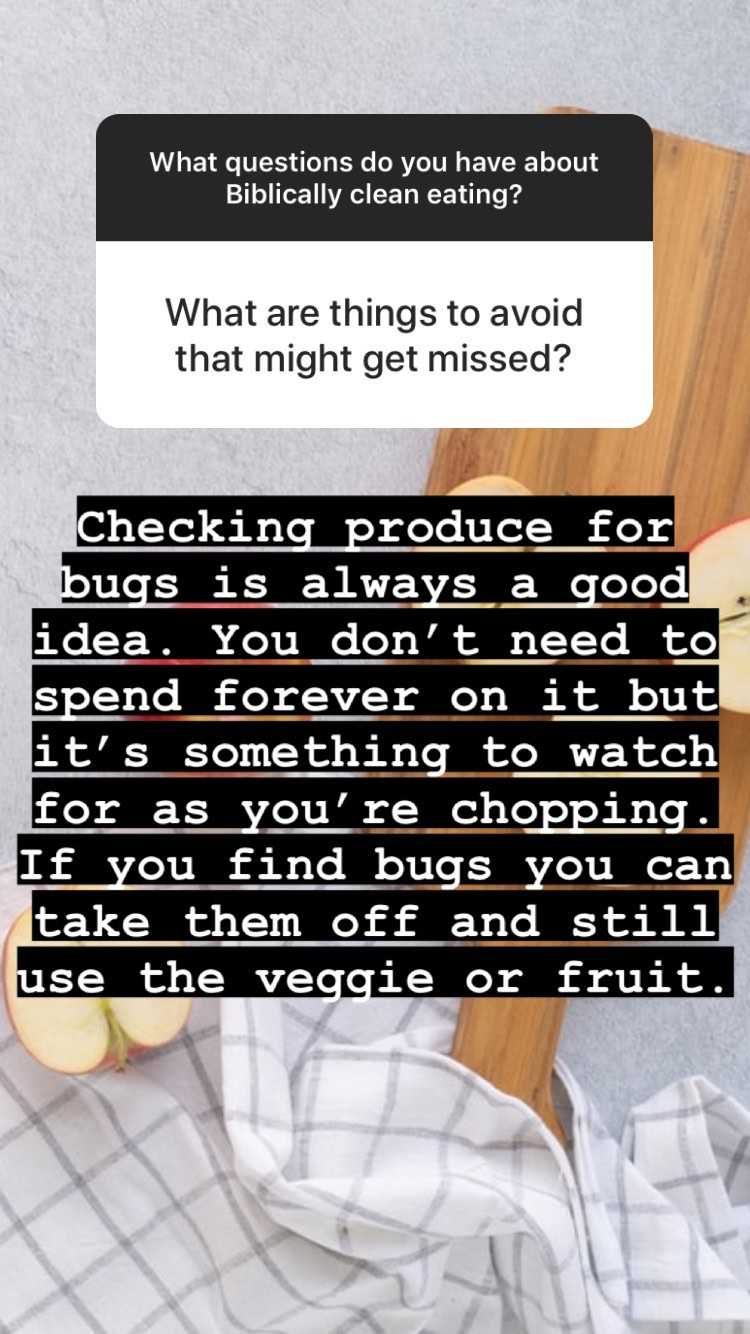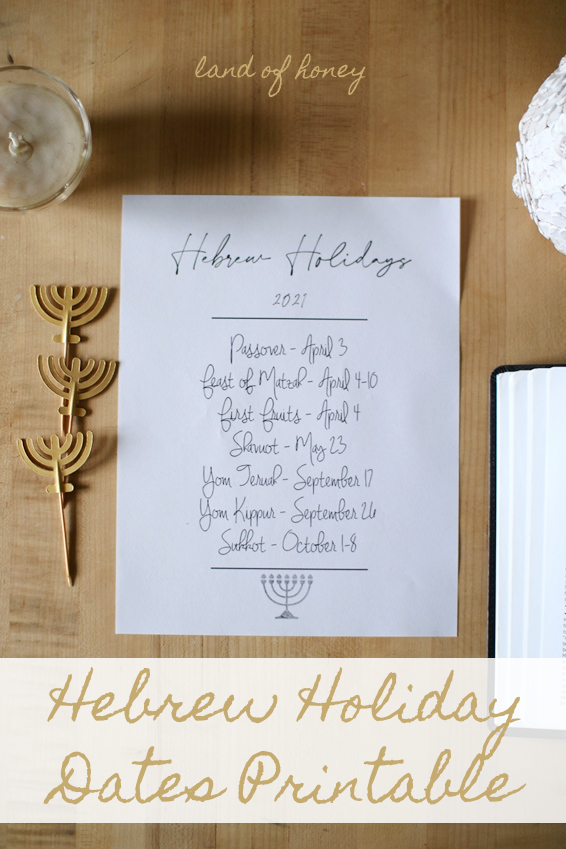Is the Biblical set apart time of Passover something believers should participate in today? Many of us have been told that the Messiah did away with those things or that they aren't applicable to us today. But keeping this feast can be so rewarding and there is so much to be learned from it! Here are five Biblical reasons for us to participate in Passover today.
5 Reasons Believers Should Keep Passover
Is the Biblical set apart time of Passover something believers should participate in today? Many of us have been told that the Messiah did away with those things or that they aren't applicable to us today. But keeping this feast can be so rewarding and there is so much to be learned from it! Here are five Biblical reasons for us to participate in Passover today.
What Acts 15:19-20 Means (The Jerusalem Council's Laws for Gentiles)
This post addresses Acts 15 and the laws that were given to new believers by the Jerusalem Council. I have heard so many people use this passage to say the commandments have been done away with, or that we don't need to bother with the rest of Scripture's instructions as long as we stick to these four things:
"Therefore I judge that we should not trouble those from among the nations who are turning to YHWH, but that we should write to them to abstain from the defilements of idols, and from whoring, and from what is strangled, and from blood." -Acts 15:19-20
So that's all we have to do, right? Just focus on those four things, and don't worry about anything else. The rest of Scripture is really too much trouble, so let's just ignore it. I used to think this verse was giving permission for believers to ignore the Sabbath and set apart times, and eat unclean animals, and things like that. I thought I could do whatever I wanted as long as I wasn't being sexually immoral or didn't eat something that was sacrificed to an idol. I figured as long as I was sticking to that list that was enough. But then I finally read the next verse.
"For from ancient times Moses is read in congregation every Sabbath." -Acts 15:21
Does this verse seem to be a little out of place? What does Scripture reading each week have to do with verses 19 and 20? They are telling others to abstain from idols, whoring, strangled animals, and consuming blood...because on the Sabbath the Bible is read?
And - wait a minute - doesn't the part of the Scripture that's being read give us a lot of other commandments? Including the very commandments that many people believe are no longer valid because of the previous verses?
This is because those four instructions are a starting point, not a list totaling Scripture's instructions for believers. The disciples assumed that anyone coming to the faith would go to congregation each Sabbath and learn more! What are the writings of Moses? The Torah, which includes the bulk of instructions for believers. So by going and listening, these people would slowly learn the word of YHWH and all of Scripture's commandments. So they weren't saying, "this is all there is," but they did say, "here's your starting point - you'll learn the rest as you go."
Seriously, if the disciples thought that the commandments were done away with or not applicable to gentiles, why on earth would they send new believers to learn about them each week? Why would they take the time to teach Scripture's instructions if only those four things were important? That literally makes no sense! That would be like taking a job and your employer training you every single week in the way they used to do business and their old policies. Talk about confusing and a waste of time.
The disciples were giving some basic starting points for people new to the faith. When you're teaching something, you always start with the basics. If you're learning math, you need to start with numbers, counting, and addition before understanding calculus. Focusing on the basics doesn't negate the rest of mathematics. Starting with addition doesn't mean that multiplication or trigonometry aren't valid or valuable. You start with the basics and then continue learning as you go to school.
Scripture is extensive, and there's no way to grasp it all at once. In the book of Acts people from all nations and backgrounds are turning to the faith. Many of these people would have been completely unfamiliar with Scripture. Others were entrenched in idol worship and pagan traditions. The need in verses 19 and 20 to clarify that sexual immorality and idol worship are not okay shows us that many new believers were participating in these things, and even found them acceptable. These practices are wrong, and cause much damage to believers. So Paul, Barnabas, Peter, and other leaders were making a game plan to handle this. They selected a few starting points, and then figured believers would learn more of Scripture's instructions each week when they heard the writings of Moses read. Of course by even bringing up that Scripture is read on the Sabbath day they were showing that they expected new followers to be keeping the Sabbath day.
When we understand this passage to be a starting point when people come into the faith, it fits with the rest of Scripture. We can see that these instructions do not negate the rest of the commandments. In fact the leaders are actually advocating for Sabbath keeping in this very passage! This is not a write-off of the word of YHWH, but rather a place to start when we enter into the faith. We should be encouraged here to consistently study Scripture's instructions so that we can continue to grow in our faith and understanding of how we are to live.
Related posts:
What Does 'No Greater Burdens' in Acts 15 Mean?
On Peter's Vision
The Book of Hebrews
Galatians
Biblically Clean Eating Q+A
Recently on Instagram I asked if anyone had questions about Biblically clean eating. I was taken aback by the huge response! It was literally hundreds of questions in a few days. I did my best to answer as many as I could. I figured I would share my responses here for those who didn't get to see this.
For clarification, this is how I define Biblically clean eating.
What about Acts 10:9-16? People use this to say all food is clean.
This chapter later explains the "kill and eat" vision Peter had to mean that no people are unclean. It's not talking about food at all. See the full post A Hebraic Perspective on Peter's Vision for more.
The dairy and meat separation. It's very confusing to me.
The basis for separating these come from Exodus 23:19 which says not to boil an animal in its mother's milk. There are a huge range of interpretations on this. Many scholars believe this is about mixing meat with that animal's specific mother's milk (as opposed to mixing goat meat with the milk of any other goat), which apparently was a pagan practice in Bible times.
Since chicken, etc. are not dairy animals there is no express Biblical prohibition from mixing that with cheese, butter, etc.
Study and pray about this. Base your decisions off of Scripture and not what someone else says.
Great reminder that we do see milk served with meat in Scripture. Abraham served meat with milk and curds. Many would say that the instructions on how to eat weren't given until later, so therefore Abraham didn't know not to do this. However we see in Genesis 7 that Noah knew the difference between and unclean animals before then.
This Is duck clean or no?
Duck is considered clean. As are chicken, turkey, quail, pheasant, partridge, goose, and dove.
How do you even begin? Especially when your husband refuses?
If your spouse isn't on board then do what YOU can. If you are cooking, make clean meals and if he wants to add something unclean that's his choice.
See this post for step-by-step help getting started.
Cheering you on during the hard time of transition! It gets way easier as you go!
Biblical Holiday Dates 2021 + Printable
These are the dates when the Hebrew holidays land in 2021! As usual, here is a free printable for you to stick in your planner, on your fridge, on your desk, or wherever else so that you can be sure to free up these days to celebrate the set apart times of our Creator. All of these holidays are significant, and honoring them will cause your faith to grow tremendously! Some of these days are called Sabbaths in Scripture, which means we are not to do any work on those days and otherwise treat them as the weekly Sabbath. I've made note of those days so that you can plan accordingly.
Once again I'm giving you two different sets of dates. There are many calendars out there that believers observe, and my goal is not to convince you of which one to pick. I share these two because they are the most common amongst people I know. I would encourage you to pick a calendar and go with it. If you have a congregation, going with their dates gives you a chance to celebrate with community, which I am all for. As always, pray about how you should live and be willing to make changes and adjustments as your faith grows and you learn more.
Traditional calendar:
The traditional calendar has days going from sundown to sundown. Holidays start at sundown on the day listed. For example, Passover starts at sundown on March 27 and ends at sundown the next day, on March 28. The traditional calendar also gives an extra day for Shavuot and Yom Teruah, though Scripture treats both as one-day holidays.
Passover - March 27-28
Feast of Unleavened Bread - March 28 - April 4
First Fruits - March 28-29
Shavuot - May 16-18
Yom Teruah - September 6-8
Yom Kippur - September 15-16
Sukkot - September 20-27
No work days:
First day of Unleavened Bread - March 28-29
Last day of Unleavened Bread - April 3-4
Shavuot - May 16-18
Yom Teruah - September 6-8
Yom Kippur - September 15-16
First day of Sukkot - September 20-21
Last day of Sukkot - September 26-27
Not familiar with a no work day? They are treated as the weekly Sabbath. More on that here!
Torah to the Tribes' calendar:
This calendar uses daylight to daylight dates. This means Passover starts at daybreak on April 3 and ends at daybreak April 4, which is the start of Unleavened Bread.
Passover - April 3
Feast of Matzah - April 4 - 10
First Fruits - April 4
Shavuot - May 23
Yom Teruah - September 17
Yom Kippur - September 26
Sukkot - October 1-8
No work days:
First day of Matzah Week - April 4
Last day of Matzah Week - April 10
Shavuot - May 23
Yom Teruah - September 17
Yom Kippur - September 26
First day of Sukkot - October 1
Last day of Sukkot - October 8
Whatever calendar you go by, now is the time to plan your schedule and put in for time off from work so that you can enjoy these set apart times.
Related posts:
The Beginner's Guide to the Biblical Holidays
Why I Started Celebrating the Biblical Feasts
What is No-Work Day?
Dates for Passover, Unleavened Bread, and First Fruits!
Here's When the Biblical Holidays Happen in 2025
This is when the Biblical holidays happen in 2025. If you're looking for this year's dates for Passover, Unleavened Bread, First Fru...



.JPG)
.JPG)
.JPG)
